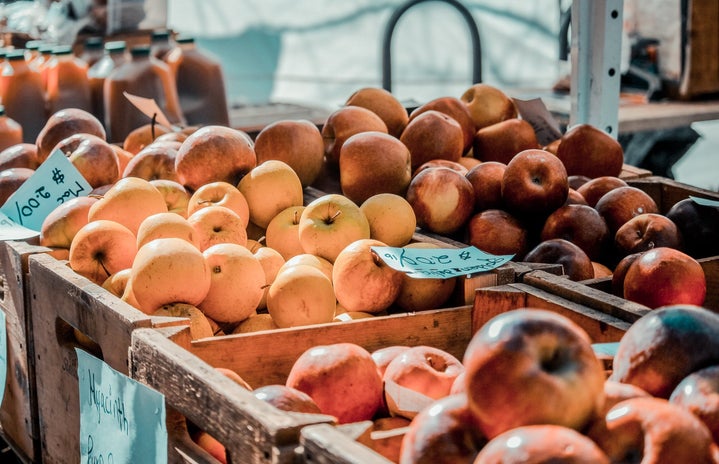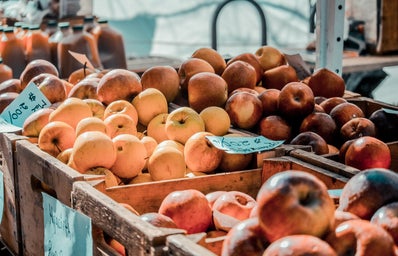Before I even get into the main points of this article, I want to clarify that this is in no way shape or form some new fad diet or restrictive eating method. This is just some information on the nutritional and environmental advantages of incorporating more seasonal foods into your diet. In fact, many of us are already halfway there with seasonal eating with all the pumpkin recipes we’ve been consuming this time of year. So, being taken in consideration to food access and each person’s individual dietary needs here are just a few reasons why seasonal eating can help amp up your meals, save the environment and benefit you financially.
- Taste
-
When a food is picked fully ripened, the taste is no doubt the best. Seasonally picked food is full of nutrients and vitamins due to the allocation of the food being harvested at its peak, rather than being picked early to allow for adequate shipping times. By naturally ripening out in nature rather than in a greenhouse, the produce will have the best and freshest taste.
- Cost Efficiency
-
Produce that is in season is more abundant and is often being shipped into the stores from more local vendors. This means there is a lower cost for shipping and travel. Therefore, the in-season produce will cost less per pound compared to out of season foods that had to be shipped in across the country or from various greenhouses.
- Environmentally Friendly
-
Bouncing off the previous point, when out of season produce are shipped in from other countries, greenhouses, or farms across the country, the increased levels of travel for the food negatively impacts the environment as the trucks or planes shipping food are significantly contributing to the carbon footprint. To further reduce your carbon footprint, gardening in your own backyard or through a community garden lowers the amount of produce you’ll need to purchase from the stores and is cheaper too!
- Community Impact: Shopping Local
-
When you’re eating more seasonal foods, the produce is coming from local farms and vendors, and greatly benefits your small local businesses rather than continuing to contribute to large scale vendors. It also builds a greater sense of community and deepens your connection to the food you’re eating as you can identify exactly where it’s coming from. I love to check out my town’s farmer’s market that’s usually held from late spring and lasts well into the fall months, as well as checking out local and family owned organic grocery stores that get produce and other goods from local vendors! Many farms also allow you to participate in a farm share or community supported agriculture programs to buy a section of farmland to receive produce from each week.
I hope this gave you some insight to the benefits of seasonal eating. Obviously, this doesn’t mean you have to strictly cut out buying any food that isn’t seasonal (sometimes you might just want some watermelon in the middle of January) but it’s definitely a great way to add more nutrient dense and fresh produce into your diet. Here’s a list of some produce that is currently in season and a great source if you’re interested in looking ahead at what produce will soon be in season!
- Apples
- Artichokes
- Arugula
- Beets
- Broccoli
- Brussels sprouts
- Carrots
- Cauliflower
- Celery
- Cranberries
- Edamame
- Eggplant
- Figs
- Garlic
- Grapes
- Green beans
- Kale
- Limes
- Mushrooms
- Onions
- Pears
- Potatoes /sweet potatoes
- PUMPKINS
- Spinach
- Squash
- Zucchini


